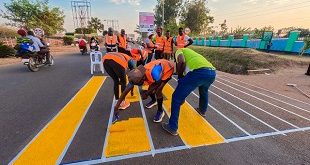
Kampala, Uganda | THE INDEPENDENT | Families of people who have died from the second wave of Covid-19 or are infected could suffer mental problems.
Mental health experts warn that patients, family members and also health workers are likely to suffer from anxiety and even mild depression.
Dr Hillary Irimaso, a psychiatrist and also the general secretary of the Uganda Psychiatric Association says the surge in COVID-19 cases is going to mentally affect both patients and family members.
Irene Nakasita was discharged from the COVID-19 treatment unit at Jinja Regional Referral Hospital on June 9. Nakasita says that her stay at the hospital was frightening.
According to Nakasita, life in the treatment ward was terrifying and full of tension because she never knew what would happen next. With no family members allowed into the ICU where she spent five days, Nakasita had no one apart from health workers to talk to.
Emmanuel Mukisa, a 38-year-old from Kyebando who has lost four relatives in the past week to the pandemic says it has been hard for his mother who lost her brother and could not even travel for burial.
“My uncle was her best friend but she could not attend burial due to the travel permits. She could not tell her friend farewell in person. She watched what happened on zoom but it is not the same,” Mukisa says.
Dr Paska Apiyo, the head of the COVID-19 treatment unit at Gulu hospital says that health workers also need psychological help.
Apiyo says while a lot of attention is focused on the sick, health workers too are suffering and often break down because of what they see every day.
“We need psychosocial support. We are suffering here. Sometimes you find us crying with the health workers. Our families are scared of us. They worry we shall also fall sick. But we are not getting anything. We need to be looked after. Health workers need help too,” Dr Apiyo said.
Dr Hasfa Lukwata, the assistant commissioner in charge of mental health at the ministry of health says with the current t upsurge in infections and deaths and the fear of the unknown, they expect very many people to suffer from mental problems, especially family members.
“So many people will likely be scared about the well-being of their relatives who are in hospital. Since they cannot be present for their hospital stay as is the case normally, we expect cases of anxiety or even some depression to set in,” she said.
Dr Lukwata says while they were able to offer counselling to family members in the first wave, this might not be possible this time around due to the nature of the second wave.
To deal with any possible mental health issues that might result from the deaths of family members or admission into hospital for COVID-19, Dr Irimaso suggests that people should start spending less time on social media that continuously paints a grim picture of the COVID-19 situation in the country.
*****
URN
 The Independent Uganda: You get the Truth we Pay the Price
The Independent Uganda: You get the Truth we Pay the Price



